In a year where the future of film felt more uncertain than ever, the Merry-Go-Round Magazine staff cast their best-of-the-year ballots and hereby present the top 20 films of 2020.
Honorable Mentions:
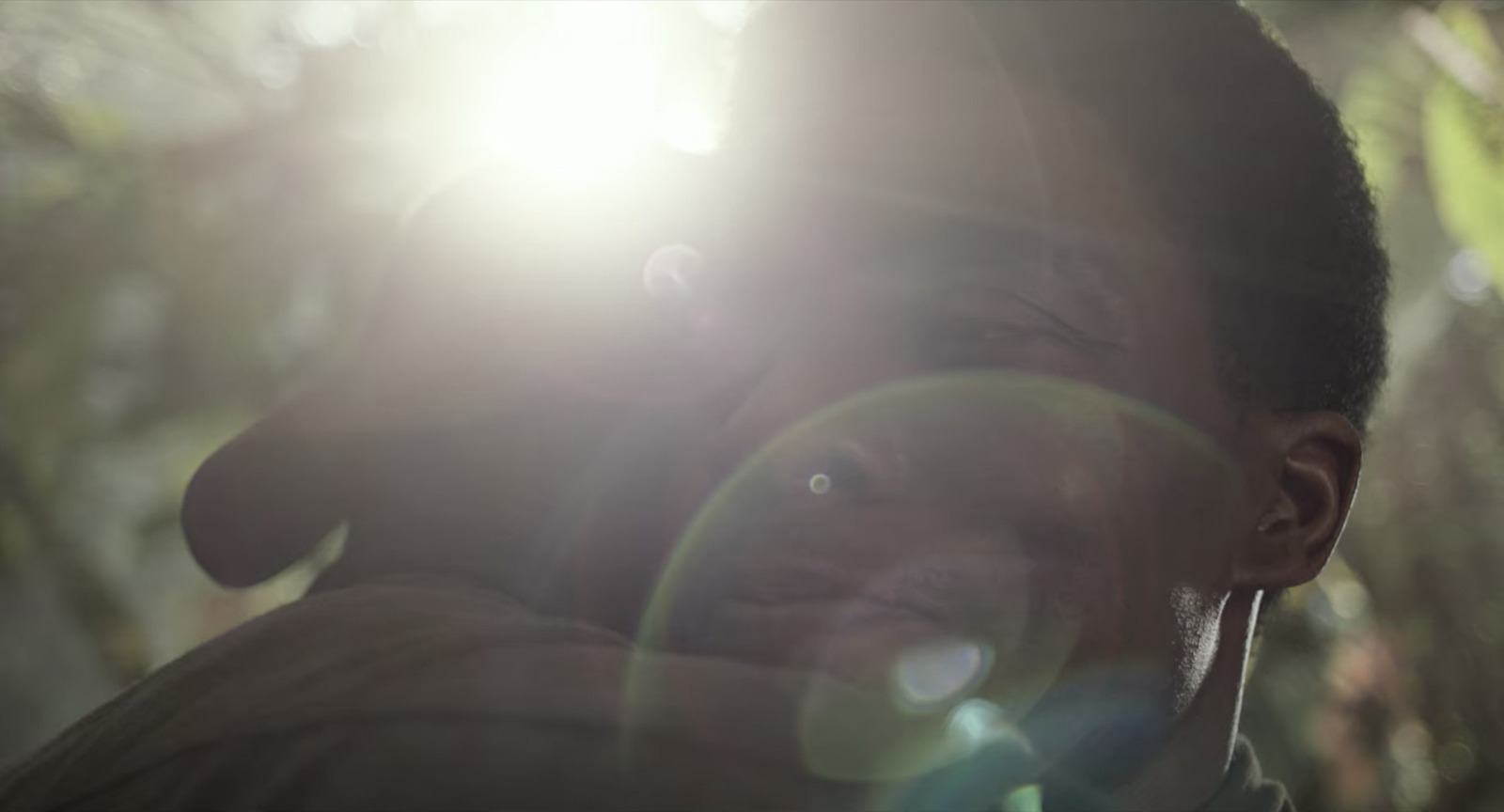
DA 5 BLOODS
Director: Spike Lee
Spike Lee knocks another one out of the park with DA 5 BLOODS, a journey into the Heart of Darkness that is at once playful, brutal, and deeply sad. Lee intertwines past and present through archival footage, weaving a tapestry of American military history that shows how our cultural traumas will forever continue to haunt us. If the Academy doesn’t acknowledge Delroy Lindo’s astounding turn, well… Actually, that would be pretty par for the course. [Keshav Srinivasan]

EMMA
Director: Autumn de Wilde
On January 1st, 2020, I tweeted “i’m trying to have zero expectations for 2020 but if EMMA (2020) doesn’t literally change my life i will throw the whole decade away.” Autumn de Wilde effortlessly breathed new life into the Austen classic, reigniting that gorgeous, long-lost high school longing and prepared us to sit in our houses and yearn for the rest of the year. The decade is saved: EMMA is perfect. [Aya Lehman]
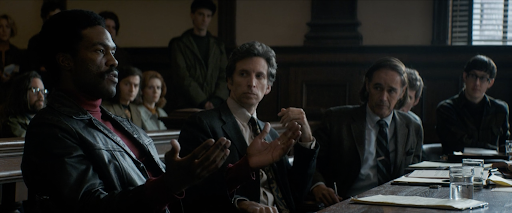
THE TRIAL OF THE CHICAGO 7
Director: Aaron Sorkin
When Aaron Sorkin is on, he is on. Nothing is more thrilling than seeing the screenwriting auteur fire on all cylinders, and in THE TRIAL OF THE CHICAGO 7, he has plenty of opportunities to show off. Whether it’s the sharply funny zingers or the impassioned monologues, Sorkin’s script allows its brilliant cast room to chew the scenery. While it may not achieve the depths of THE SOCIAL NETWORK, CHICAGO 7 finds the seasoned writer at his most passionate. [Keshav Srinivasan]

LA VERONICA
Director: Leonardo Medel
It’s hard not to love Leo Medel’s Chilean Instagram satire, LA VERONICA, a film about a brand-obsessed narcissist who loses her mind when her soccer-celebrity husband rightly expects her to step up to the plate and mother their baby daughter. With every single scene composed exactly the same way (a close-up shot of our eponymous lead), you won’t find a more creative display of a person who believes that they should constantly be the center of attention. [Sergio Zaciu]
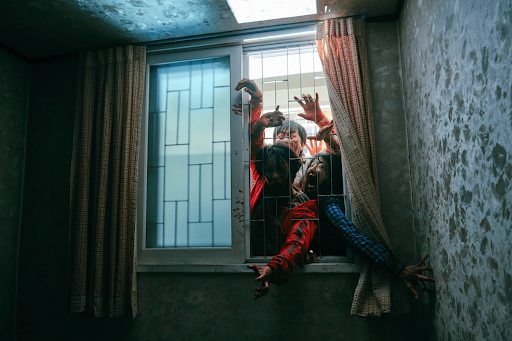
#ALIVE
Director: Cho Il-hyung
Not a year passes by that South Korea doesn’t give us something worth munching on, and while #ALIVE may not quite be auteur Cho Il-hyung’s masterstroke akin to last year’s PARASITE, it’s certainly among the best Netflix originals to fly under your radar. A zombie movie set entirely inside of a tenement building, using Gen-Z gadgetry and social media as tools for survival, there’s plenty of fun to be had with this little romp. The acting is good, the gore is gnarly, and it’s oddly comforting to watch a character barricade themselves in the midst of a pandemic. Seriously, it’s on Netflix, what are you waiting for? [Sergio Zaciu]
—

20. CRIP CAMP: A DISABILITY REVOLUTION
Director: James Lebrecht, Nicole Newnham
It’s unfortunate that CRIP CAMP: A DISABILITY REVOLUTION ended up being as powerful as it is, because it implies the inherent lack of consideration the Disability community has and continues to receive. We are an implicitly, and explicitly, ableist world. Sure, considering how privileged some of us are, and how hopelessly downtrodden the rest of us are locked into being, may be important, but it also might make you feel like a resistance to the status quo. Therein lies CRIP CAMP, a film that, on its surface, you’d probably watch in history class. I’m sure a lot of us are not aware of how ADA laws were passed in the first place, but this film’s tracing of history starts in a very humane, somewhat unassuming place. The first half is about the titular camp, where every summer in the ‘70s, children of all kinds of disabilities assembled for a couple weeks and provided family, solidarity, and the usual hijinks of a prototypical summer camp. It’s delightfully surprising to hear stories about all these kids hooking up, getting stoned, and having STD outbreaks; not every story about folks from the Disabled community needs to be a weepy, inspirational teaching moment full of pity. You get to know and love these kids for their simple and universal humanities on display, unbridled by our oppressive worlds of “normalcy.” CRIP CAMP lets you meet these folks at their genesis, then follow them into a revolutionary struggle, cleverly weaving its subjects through their world-changing journeys, and ultimately rejuvenating the overly-familiar languages of documentary filmmaking. The documentary excels at taking its larger-than-life narrative and exemplifying just how awe-striking the humans within its timeline truly were. Let CRIP CAMP be a signal flare in these trying times, highlighting the necessity of communal solidarity, and coloring outside the lines when dealing with an authority that claims they won’t budge. Shove it down their throats and take it from them. [Rocky Pajarito]
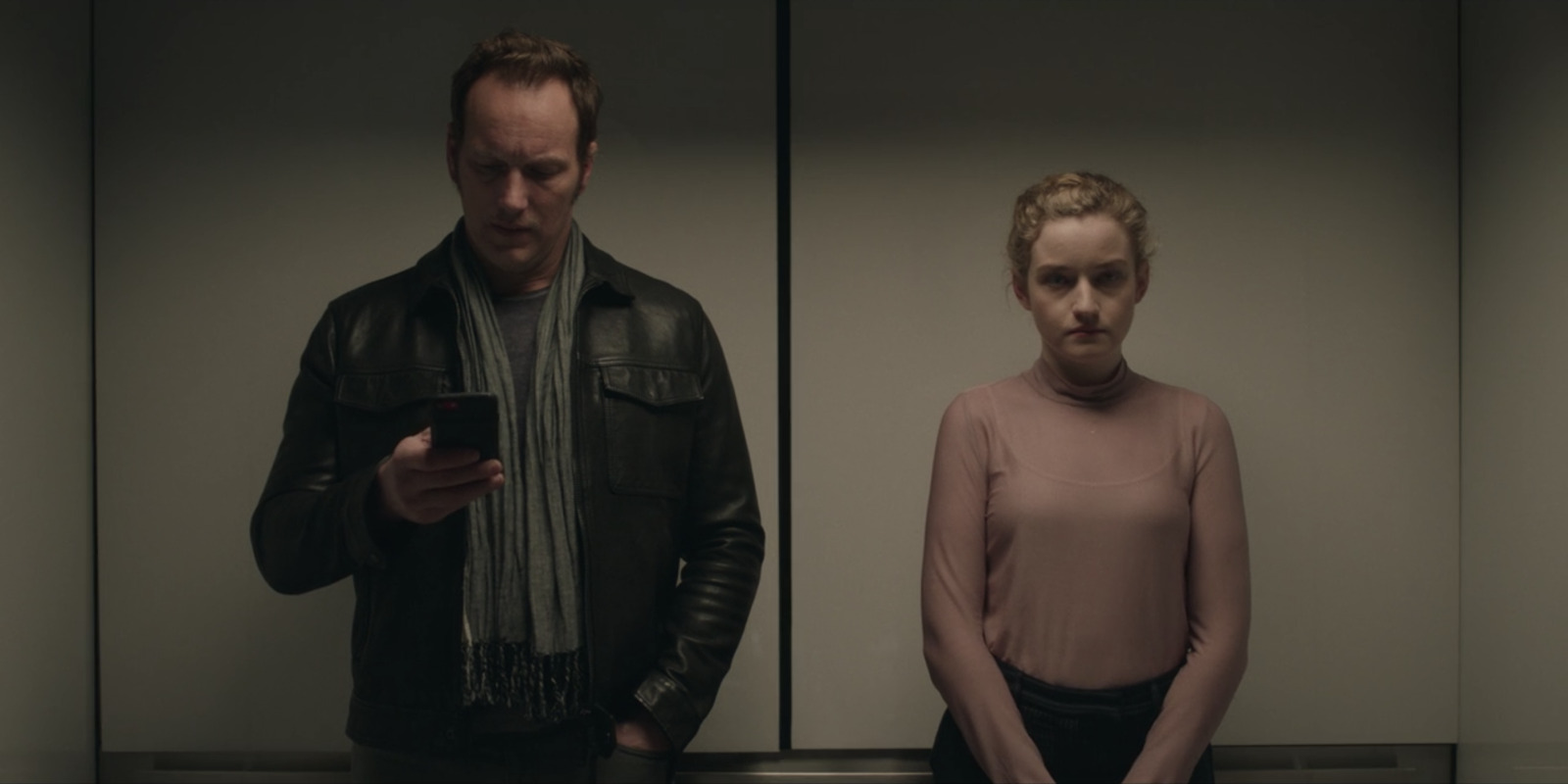
19. THE ASSISTANT
Director: Kitty Green
Modern working life is Hell. Even before the pandemic, the grueling dehumanization of the American workplace, even in a seemingly cushy office job, would be enough to drive anyone to the brink. Through her thoughtful documentarian eye, Kitty Green took a hyper-specific story about a day in the life of one of Harvey Weinstein’s assistants and made it universal. Fluorescent lights flicker with malice, Xerox hums turn to snarls, and seemingly supportive co-workers turn venomous in the blink of an eye. Despite its lean runtime, THE ASSISTANT feels like an agonizing 12-hour work day, one of those days where you’re forced to question all the decisions that lead you to be in the terrible place you are. What could have been an obvious melodrama, or a story too focused on the seedier aspects of Hollywood, instead becomes an all-too-relatable story about a toxic work environment. The fact that Weinstein can’t be explicitly mentioned by name or shown on screen makes him all the more terrifying, a mythical force weighing on every scene just out of sight. We may not all have had a boss as horrifying as Harvey, but we’ve certainly all had days that made us question our complicity in the work that we do. THE ASSISTANT is undeniably one of the best portraits of how the sausage has been made in the entertainment industry for far too long. [Carter Moon]

18. BILL & TED FACE THE MUSIC
Director: Dean Parisot
How? How did this work so well? It’s a goddamn miracle that the third BILL & TED movie, released 29 whole years after BOGUS JOURNEY, ends up being as inventive, hilarious, light-hearted, and quick on its feet as its predecessors. Perhaps it’s indicative of the mainstream comedy feature drought we’ve been suffering for the last five years, but FACE THE MUSIC felt like a genuine effort amidst peers that mistake baseless improvisation for substance. Even in middle age, Bill and Ted are hilariously lovable heroes, and you believe in their inherently good quest. The film’s whole vibe just feels so novel—not only in line with its series, an accomplishment of its own, but perfect for the times, daffily embodying the “nicecore” wave alongside JOE PERA TALKS WITH YOU and HOW TO WITH JOHN WILSON, wherein positivity is not a forced cheek-to-cheek grin, but a force found in the foibles and triumphs of an imperfect humanity trying its consummate best. BILL & TED is much more cartoonish than those two shows, but its sweetness functioned as a similarly perfect balm for these very terrifying days. The cast is having a ball, the art design is playful, and the spirits are oh so high. Even outside the peculiar circumstances of 2020, it’s just so refreshing to get this kind of jovialness in cinematic form. If this is the capper for the BILL & TED cinematic universe, then it’ll do just fine as a finale, but I’d take more BILL & TED in a heartbeat; weirdly enough, FACE THE MUSIC convinced me that “more” and “better” are entirely possible. Party on, forever. [Rocky Pajarito]
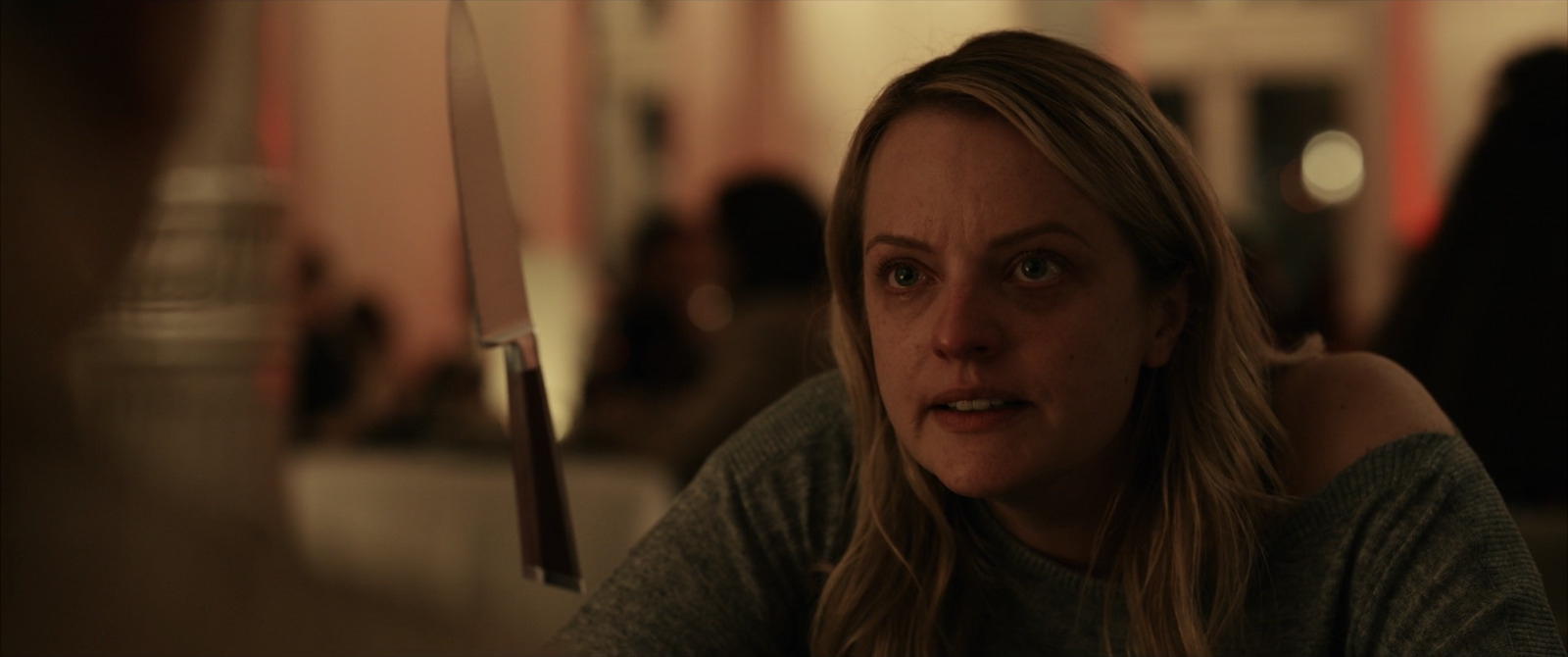
17. THE INVISIBLE MAN
Director: Leigh Whannell
If you have not “seen” THE INVISIBLE MAN (sorry, hehe), throw away any preconceived notion you have about it. Forget the original H.G. Wells novel. Forget whatever overproduced Blumhouse schlock left a bad taste in your mouth, or even director Leigh Whannell’s UPGRADE, if it did. As tired as that lot taking a swing at a nearly 125-year-old premise may appear, THE INVISIBLE MAN surprises and satisfies. The film’s less-is-more craft, and brazen but never unearned wackiness, is almost entirely carried by the legendary Elisabeth Moss; it’s more than reasonable to call the MAD MEN alum an icon, and everyone who’s familiar with her work knows she wouldn’t take what seems like a helpless scream queen role if there wasn’t some nuance to it. From the striking opening scene, the camera follows every breath of Moss’ desperate escape from her abusive technocrat husband who is, yes, oftentimes invisible. Sci-fi hyper-reality be damned, this is what actual nightmares are made of. Every jaw-dropping scene is topped by the next, and even the initial twist is mere appetizer for a larger one. It sounds dumb as Hell, but watching a gun float in mid-air has never been more intense. As ridiculous and pulpy as it gets, Moss successfully sells every bit as audiences root her on towards an absolutely wild third act that has to be seen to be believed. It’s undeniably bittersweet how THE INVISIBLE MAN triumphs as a crowd pleaser in an age without crowds. [Alexander Larios]
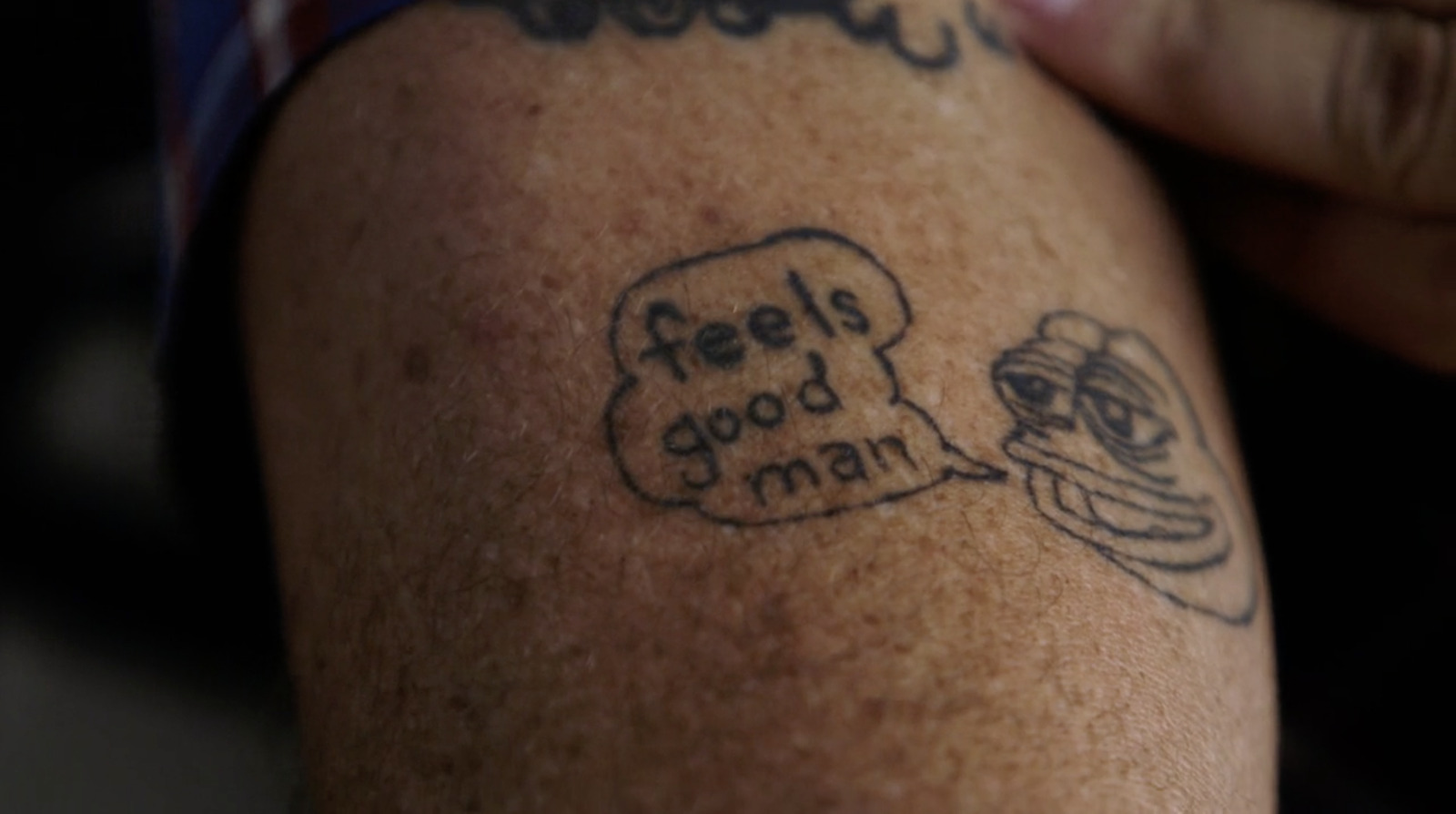
16. FEELS GOOD MAN
Director: Arthur Jones
It’s the Pepe the Frog documentary. That’s the pitch: an origin story for the Internet’s most beloved turned notorious cartoon frog and his creator, Matt Furie, and it’d be a perfectly fine film if it was just a sweet little project about cartoonists and their passions. For a few minutes, that’s exactly what FEELS GOOD MAN is, but then, just as life redefined this frog’s purpose, director Arthur Jones plunges down the rabbit hole and tries his hand at breaking the current state of right-wing fascist imagery wide open. A post-modern study of post-modernist symbology, it’s both a crucial historical document of how the digital landscape took the reins over modern culture after decades of vice versa and a quasi-Anarchist Cookbook on how to infiltrate, or find home, in these virtual societies yourself. An impressively comprehensive, soulful exploration of the irony-poisoned, disillusioned soulless, it’d be enough of a feat if Arthur Jones & Co. were able to condense the shadowy roots of online forums and neo-dadaist 4Chan humor into a linear, 90-minute narrative, which they achieve with aplomb, but the film’s intimate, on-the-ground check-ins with Furie tragically illustrate a debilitating moral conundrum collapsing into itself in real-time. There’s no question of culpability; obviously the artist has no control of who embraces or exploits their art—that’s the Russian Roulette of creation itself—but how the artist responds is critical. Furie fought hate with love and lost like a fucking chump. Of course he did. We live in a black-pilled world: water is now gasoline. If you want to extinguish an oil fire, you best be prepared to bring a shitload of TNT. [Kevin Cookman]
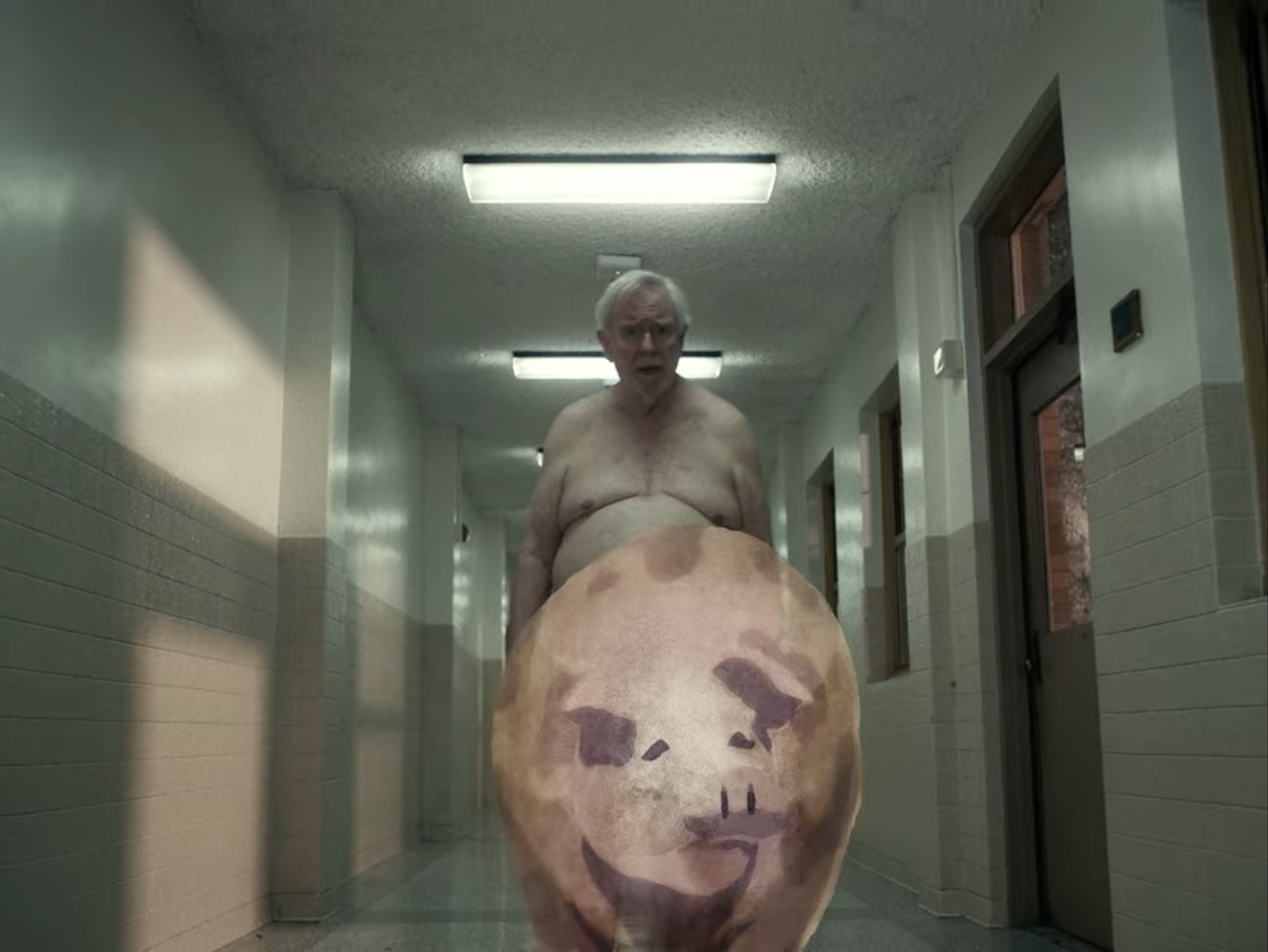
15. i’m thinking of ending things
Director: Charlie Kaufman
The thing about i’m thinking of ending things is that I am far too dumb to have any kind of idea what I was watching upon my first viewing, but the really cool thing about i’m thinking of ending things is that, at the end of the movie, you realize it’s actually totally sick to just be a simple pig, meandering the halls of your high school as some kind of naked metaphor. Again, I had to be walked through most every plot point and allegory afterwards by my very intelligent friend who googled “I’M THINKING OF ENDING THINGS EXPLAINED.” Simply hate to say it, but it would be mighty difficult to find a more prescient film in the year of our lord 2020—endlessly exhausting from the jump, Charlie Kaufman’s latest is long-winded, actively confusing, and at times downright terrifying. It’s a gorgeous cacophony of claustrophobia and hyper-real unreality, sliding so effortlessly between genres that you find yourself paralyzed with fear until Kaufman drops the funniest joke of the year (Zemeckis) and you’re choking on your spit. He expertly weaves a narrative seemingly about a woman that slowly but surely devolves into a deeply depressing look into a man’s mind—it feels so familiar, but never in this fashion, and it’s a slam dunk. Jess(i)es Buckley and Plemons are unreal, and Toni Collette and David Thewlis flawlessly bring the ultimate 2020 nightmare to life: family dinner. Me personally? I am not thinking of ending things quite yet. [Aya Lehman]

14. THE HATER
Director: Jan Komasa
“Tribalism, nationalism, authoritarianism.” It isn’t new to say these are some of the predominant ‘isms’ that characterize the darkening worlds of Trump, Brexit, and right-wing social media bots. When they are listed by an unctuous limousine liberal at a dinner party in Jan Komasa’s breathtaking new picture, THE HATER, it is done so not to speechify, but to remind the audience of the provocative levels of power at the disposal of our unlikeable but cunning protagonist. And he is compelling—someone so driven to get what he wants that he enacts a series of too-cute-by-half, but guiltily entertaining schemes that rival the gleefully despicable acts of BREAKING BAD’s Heisenberg. When I think of how many old movies could never be made today simply because the existence of cell phones eliminates 90% of suspenseful plot devices, it thrills me to see a film like THE HATER use new technology to its advantage. It tells a tale that could only exist today, precisely because we as a society have never before experienced an era where any person can bypass a third-party press and potentially reach millions of people in seconds, for good and for bad. Imagine if Dr. Mabuse had that kind of reach! Komasa takes the themes of digital alienation he touched upon a decade ago in his debut, SUICIDE ROOM, and forms a gripping portrait of an incel that in every way blows JOKER out of the water. I’d be hard-pressed to say there’s any moral to the story, but then again, why should there be? This is cinema: not only is it meant to entertain us, it provides a visceral mirror into worlds we’d never want to visit in reality, a means to understand the darkness we’d rather sweep under the rug in our own world. To uncomfortably live in the skin of the enemy is sometimes far more important than watching another cinematic act of confirmation bias. [Reid Antin]
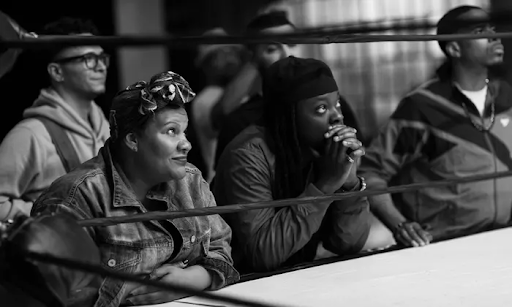
13. THE FORTY-YEAR-OLD VERSION
Director: Radha Blank
A black-and-white directorial debut as stirring as Spike Lee’s SHE’S GOTTA HAVE IT or Darren Aronofsky’s PI, but told from the beating heart of a female artist, THE FORTY-YEAR-OLD VERSION follows a newly 40-year-old woman who decides to write and perform rap music as a means to break free from the monotony of middle-aged expectations. Loosely based on director and star Radha Blank’s real-life experiences as a playwright and teacher, the film is part auto-biography, part three-act-play; a tale of the sacrifices artists make for their own survival. Beautifully shot on 35mm, the verité style and composition are refreshingly humanist, showing truthful vignettes of a New York City life, one spent on crosstown buses, inside venues, public schools, and other spaces that could overwhelm, but are surprisingly intimate in Blank’s vision. Radha’s teetering self-confidence and self-sabotaging is quietly shown throughout these places as she reflects on her life’s failures: she’s a compelling storyteller and actress, sharing the emotional, developmental depths of a female archetype that society often overlooks. It’s uniquely punctuated by Blank’s hilarious commentary on race and Blackness within the dramatic arts, and her struggles with appeasing white cohorts. As I come of age into this next life phase as a newly 30-year-old woman, it was the perfect choice to stream on the morning of my birthday. [Hilary Jane Smith]
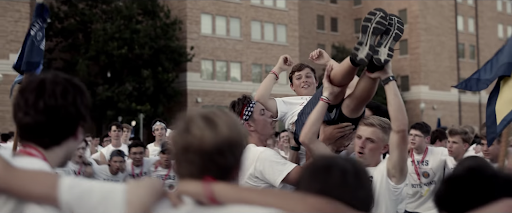
12. BOYS STATE
Director: Amanda McBaine, Jesse Moss
Founded to educate high school students on the mechanics of American government, bringing together over 1,000 young Texan men (the women are separated into their own program), the American Legion’s historic Boys State program as we see it devolves into a room full of rowdy, immature teenagers with half-baked opinions spending a week playing pretend with political issues that affect real Americans every day—minus the odd plan to secede from the union or create a $3 trillion alien preparedness plan (Then again… Space Force?). However, the four subjects we follow in Amanda McBaine and Jesse Moss’s BOYS STATE have distinct traits that are evocative of some of our country’s top leaders. These young men, in particular the Reagan-loving master of spin Ben Feinstein, bi-partisan dark horse Steven Garza, and progressive René Otero (whose impassioned district party chairman speech gives off young Obama vibes) conduct themselves with the decorum of having held office for decades. The personal stakes feel so high that you almost forget that these elections have no direct, real-life implications—until you consider that many of these young men will run for, and likely win, positions in public office. More than just a sociological experiment, BOYS STATE highlights the ways in which politics are likely—or unlikely—to change from their current state. Beyond party lines, it is an exploration of how people from opposite sides of the political spectrum and diverse backgrounds can coexist within the same room, within the same party, and within the same country. One thing was made extremely clear to me: as a female viewer, it was not lost on me for a second how easy it was for these young men to make decisions about women’s reproductive rights without a single woman present, or welcome, in the space. If ever there was to be a case made for the need for women in politics, it’d be BOYS STATE. [Lauren Chouinard]
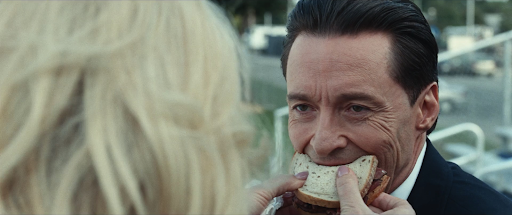
11. BAD EDUCATION
Director: Cory Finley
I first encountered Cory Finley through his debut film, THOROUGHBREDS, at AFI Fest; his background in theatre already highlighted a great attention for scene work that is often lacking in contemporary cinema. I liked THOROUGHBREDS, but BAD EDUCATION is a marked step up, allowing him to flex some of his intellectual muscles that THOROUGHBREDS’ genre trappings didn’t really allow for. The comparisons to ELECTION write themselves—what with this being a school scandal comedy—but it’s great how much more this apes the formal and mechanical components of political/corporate dramas of MARGIN CALL, THE WEST WING, and even VEEP: Finley brilliantly elevates a high school administration into something as tense as The Oval Office. This is absolute banger filmmaking: great visual storytelling, fantastic characters, and some really awesome rhetorical head-butting. Hugh Jackman is extremely dedicated in this role, and Allison Janney delivers a career-best performance. [Sergio Zaciu]
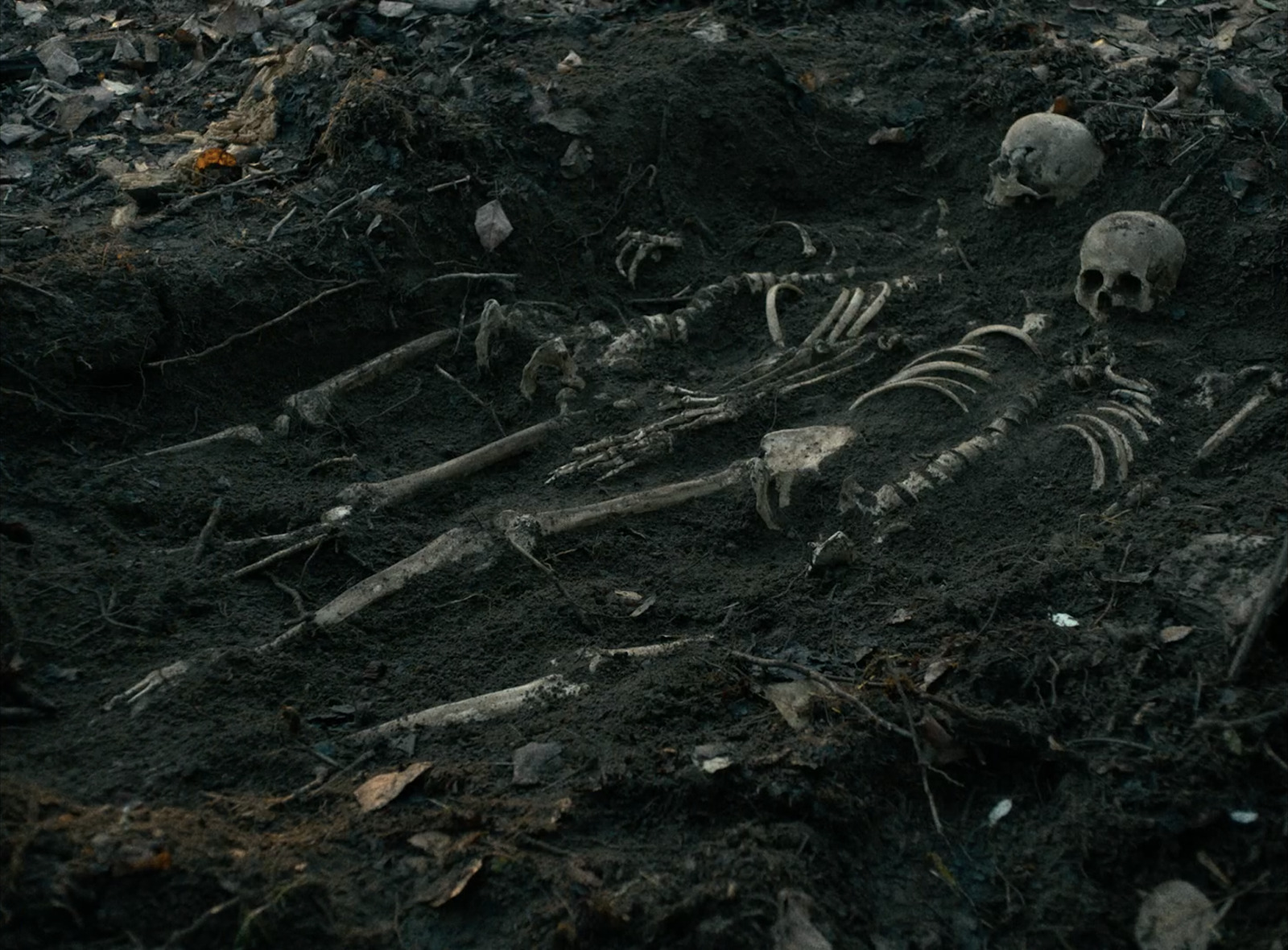
10. FIRST COW
Director: Kelly Reichardt
FIRST COW rules, but we can agree: there is not nearly enough of the titular cow, or Alia Shawkat, in the film. Carefully directed by Kelly Reichardt, FIRST COW is an Earthy, tender, still, and textured tale about the greatest thing on Earth (friendship) and the worst (capitalism). The thing about history is that we remember it so carelessly, allowing our memories to be warped by the soft light of rose-tinted glasses—FIRST COW spends its runtime showing its audience the harsh brutality of the Western frontier, the grinding capital that this country is built upon digging its claws into even the most basic American communities. Yet, the memories of baking with Cookie and King Lu are what stick with us: two pals, seated by the fire, starting their business, milking the titular cow. It’s all that lingers, and like Alia Shawkat discovering our protagonists’ skeletons in the Oregonian woods, we’re inspired to clutch our bosom and coo at the sweetness of their final resting place with only the slightest twinge of “Wait, what the fuck?” in the back of our heads. The lead performances from John Magaro and Orion Lee are so captivating; watching them quietly milk the cow by a lantern’s light is so peaceful and sentimental, it almost makes you forget the stakes at hand. Almost. [Aya Lehman]
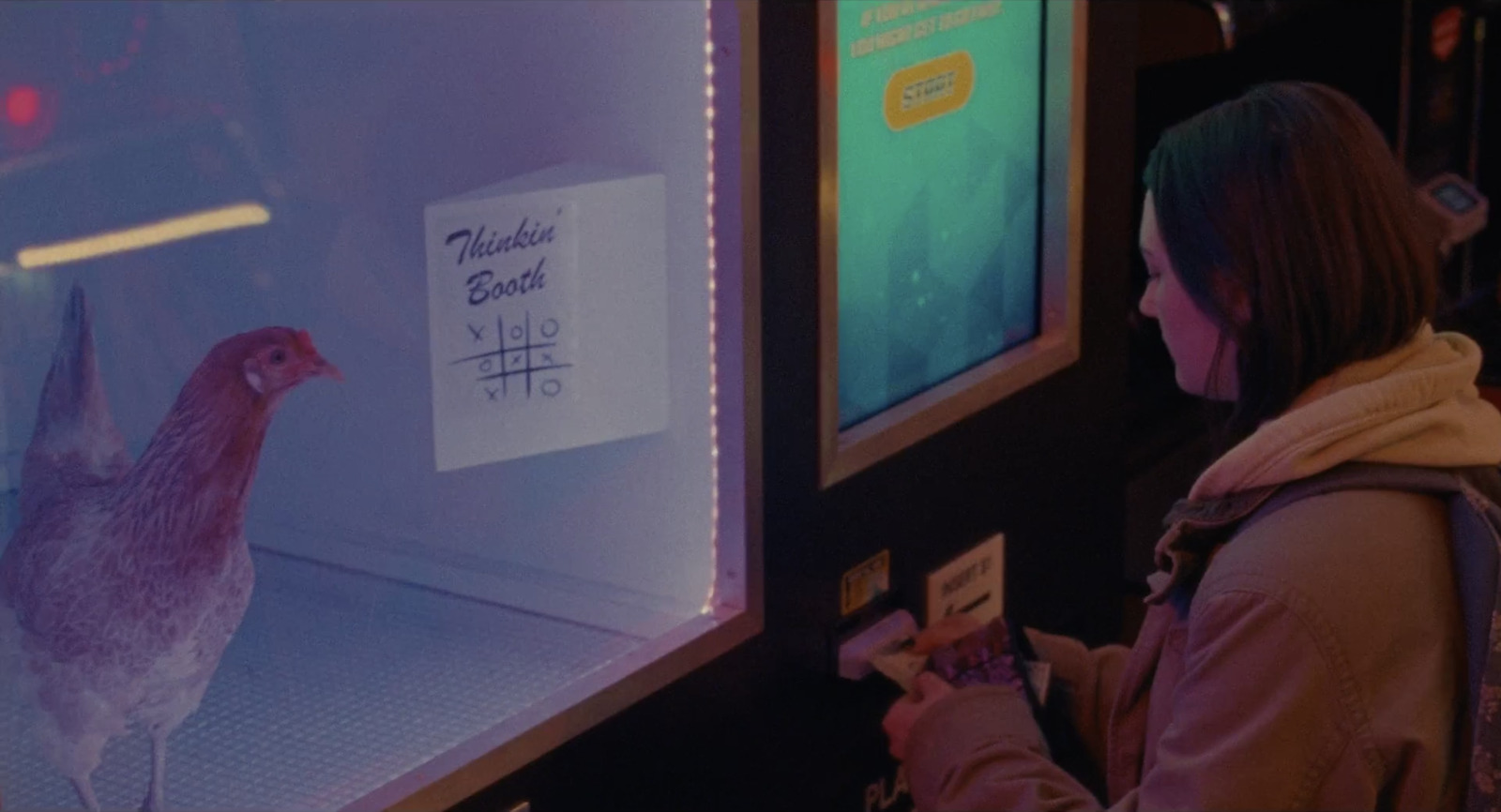
9. NEVER RARELY SOMETIMES ALWAYS
Director: Eliza Hittman
NEVER RARELY SOMETIMES ALWAYS is a film about the difficulty of receiving an abortion in rural America, but also about how dangerous it is to walk through the world as a teenage girl. Whether they are being talked down to by the manipulative figures in the Evangelical pregnancy center, or dodging the constant barrage of sexual harassment at every turn, there is a looming threat of terror hanging over every situation our young female protagonists endure. It never feels melodramatic or like it’s forcing a particular POV upon its viewer: when lead character Autumn finds out she’s pregnant, there is no discussion of who the father is, how she got pregnant, or any of the circumstances surrounding the position she finds herself in. Instead, she goes and pierces her nose, a symbol of taking back control over her own body. NEVER RARELY SOMETIMES ALWAYS is a story of moving forward, facing difficult truths, and navigating a world where having full autonomy over oneself is never a straightforward venture. Much like the forward momentum of the narrative, the pacing feels just right—never rushed or hasty. Eliza Hittman is the future of film directing, and her young stars deliver authentic, organic, and melancholic performances that have haunted me for months. [Lauren Chouinard]
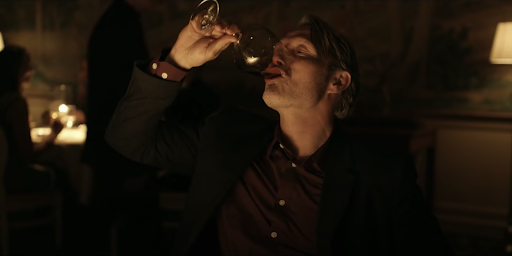
8. ANOTHER ROUND
Director: Thomas Vinterberg
ANOTHER ROUND is the latest film by Thomas Vinterberg, notable Danish auteur and Lars von Trier collaborator, that follows four middle-aged teachers who decide to experiment with the theory that maintaining a constant BAC of 0.05% will help oneself achieve maximum serenity and self-actualization. This humorous premise seems to work, and even though we’re perplexed as an audience, everything goes well. Day-drinking while teaching high school students? Why not? Ultimately, the friends slip into the inevitable trappings of alcoholism and familial neglect, ruining their lives, but let’s face it: the cracks in the fissure were there to begin with. Nordic films, even when they are shot in a breathtaking natural light, can be anchored in dark themes, and ANOTHER ROUND is no different. Mads Mikkelsen is phenomenal in an emotional, yet understated performance. He is one of our generation’s greatest actors, and the final scene, while shockingly bright after a dark abyss of a third act, will leave you feeling as ebullient as BEAU TRAVAIL’s finale. Mikkelsen needs to dance more in movies, please cast him in a musical! Leave it to the Danes to produce a sardonic dark comedy about alcoholism, because if this movie was produced in the United States, it would be another lazy Farrelly Brothers gag vehicle. [Hilary Jane Smith]
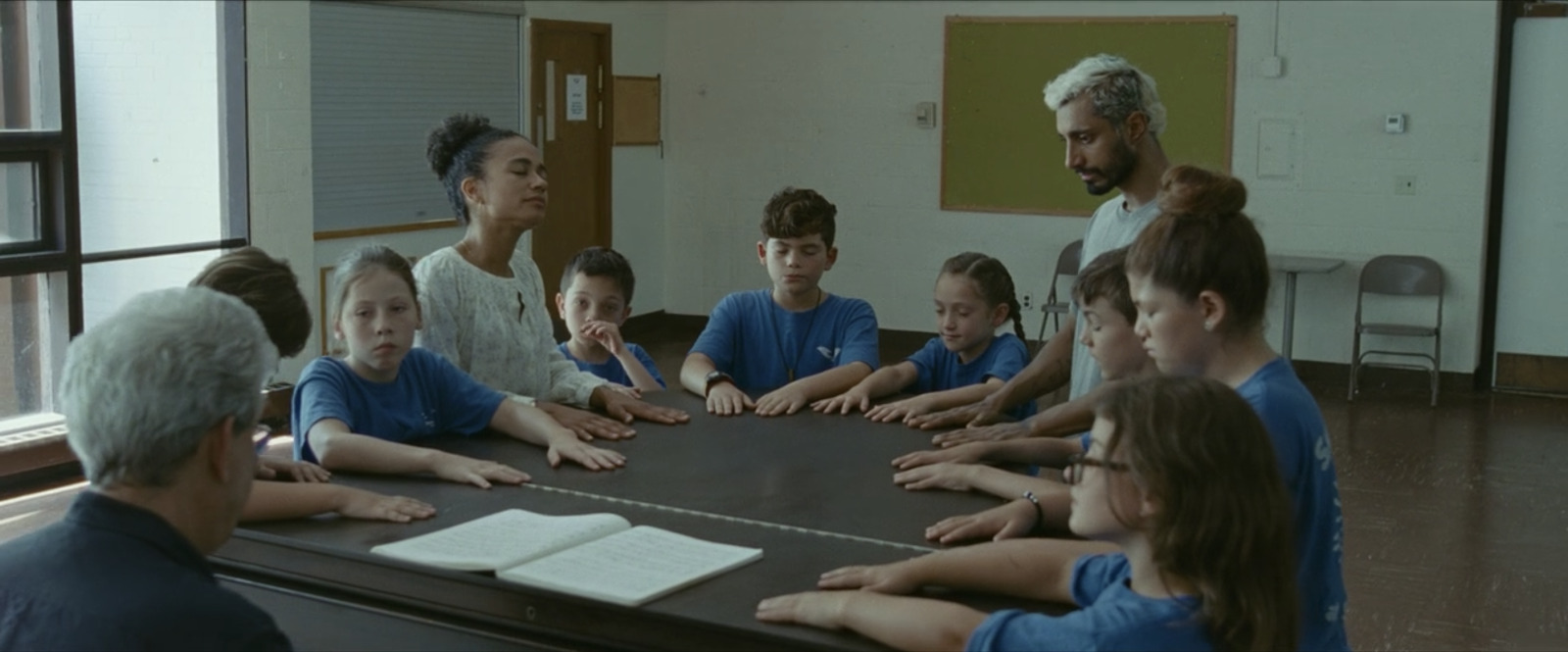
7. SOUND OF METAL
Director: Darius Marder
In a year of destroyed plans and abandoned hopes, SOUND OF METAL struck particularly well. What made Darius Marder’s tight and personal film so effective was introducing us to Ruben, a recovered drug addict who’s meticulously pulled his life together as a drummer in a two-piece metal act with his girlfriend. Ruben believes he’s done everything right to hold his life together on his own terms, only to wake up one morning to discover that he’s rapidly losing his hearing. Whether his sudden affliction is a complication from his drug habit or the natural consequence of playing heavy music is irrelevant; Ruben’s life decisions clearly brought him to his newfound struggles, something which obviously weighs on him tremendously. Riz Ahmed’s frantic portrayal of Ruben cements him as one of our finest actors—his alternating mania and tenderness are heartbreaking. Marder rarely takes the obvious way out as the film progresses, and he understands how to give certain details the breathing room they deserve. For a movie about momentum and anger, it’s the moments of profound stillness that make it soar. SOUND OF METAL is not a masterpiece, but its highs come in the form of a pure, honest cinema that was desperately hard to find in 2020. [Carter Moon]
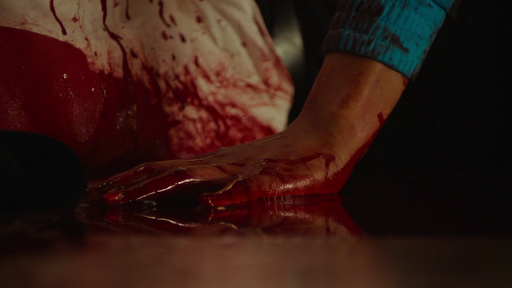
6. POSSESSOR
Director: Brandon Cronenberg
POSSESSOR isn’t here to hold your hand. Brandon Cronenberg plays fast and loose with plenty of familiar sci-fi tropes in setting up his psychological thriller, one that involves an assassin organization that takes over host bodies to get close to their targets. Cronenberg, like his father, is far more fascinated with the psychological ramifications of taking over a person’s body than he is of the larger heist elements of the plot. What would happen to someone inside another human’s psyche? POSSESSOR plays out with slow-burn simplicity, the camera lingering on every image in ways both beautiful and horrifying. The mental anguish Tasya (Andrea Riseborough) goes through to take over Colin’s (Christopher Abbott) body becomes a way for Cronenberg to deliver some of the most striking and disturbed visuals of the year, a blend of the classic body horror that precedes him and a fresh, otherworldly series of stark imagery. The technology and process, or the organization itself, are not important—you’ve seen INCEPTION, you’ll be fine. That he chooses to instead focus on the tone and visuals make POSSESSOR a thrilling and unique watch unlike anything else released this year. [CJ Simonson]
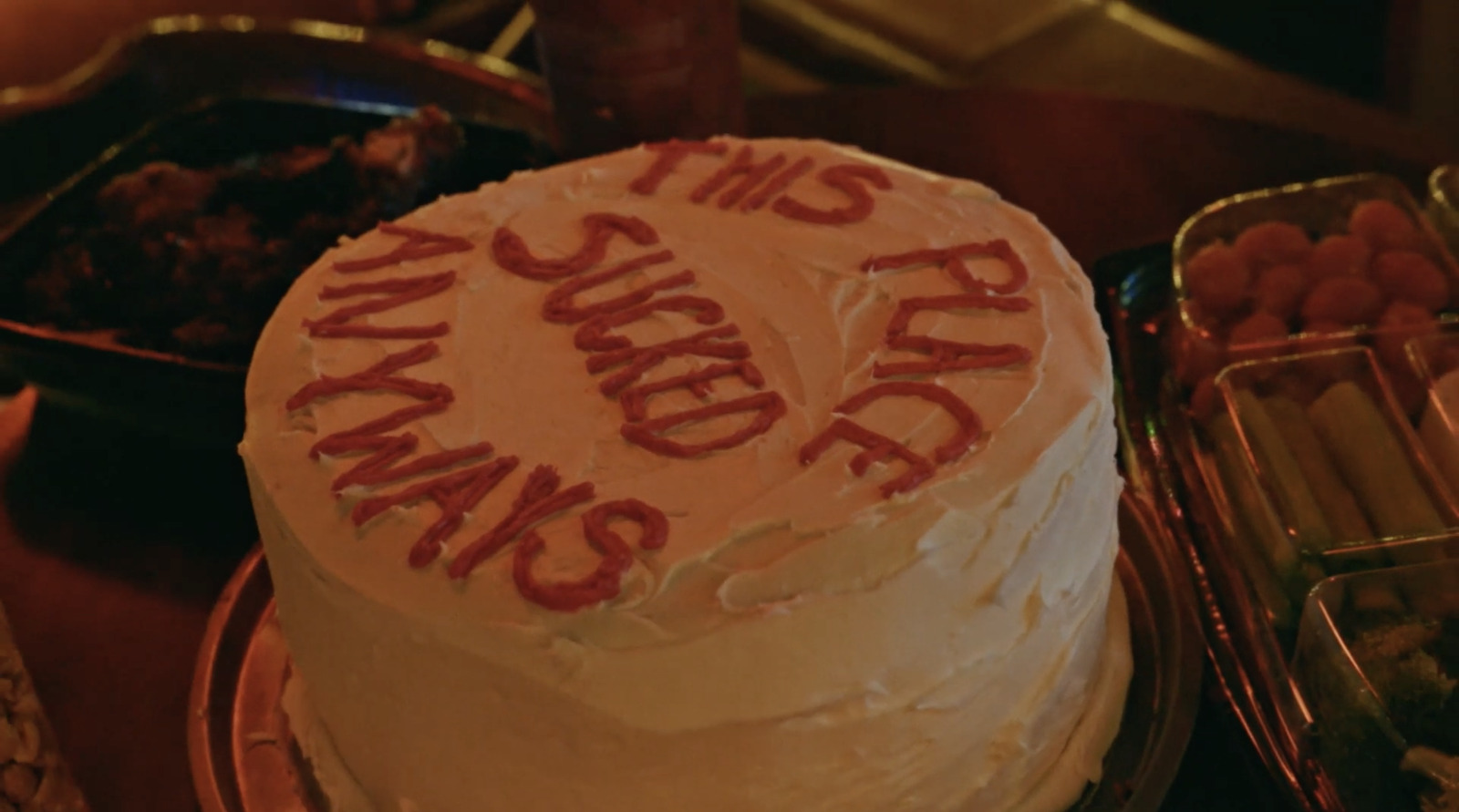
5. BLOODY NOSE, EMPTY POCKETS
Director: Bill Ross IV, Turner Ross
On the night of my 21st birthday, I was three sheets to the wind at Paul’s Cocktails. I showed up hammered, proudly showed my ID to the bouncer at midnight, had approximately 2.5 drinks, and was then promptly, drunkenly accompanied home nearly an hour later. Through the liquored-up haze of cheap IPAs and Jameson, the dive bar felt like an old man’s game, like the center of a culture war between blue collar drunks and the few young people who would dare try and impede on the territory. Especially in comparison to other bars in the area, few college kids I knew felt resigned to piss away their 20s on secondhand smoked-out patios and pitchers of Coors when karaoke and dancing could be found just down the road. There was poetry in the language of the dive bar, both the people who frequented them and those shady and strange enough to run them. Eventually, I became a regular at these bars: becoming a townie is a helluva drug. BLOODY NOSE, EMPTY POCKETS is that experience put as poetically as possible. It’s a living document of the delivered thrill of going where everybody knows your name, even if they’re not always glad you came. The Roaring 20s, the Las Vegas dive that becomes the focus point of the film, is Paul’s. It’s every cheap roadside “Cold Beer Here” sign, every shitty sticker plastered on a bathroom stall, every aggro bouncer, and every A.M. hair of the dog visit where the almost-sober light of day paints the space in a different light. While it might not be entirely legitimate (a detail that brilliantly rides the line between mind-shattering spoiler and beyond impressive achievement), no other movie released in 2020, especially with bars shuttered across the U.S., has felt more real. BLOODY NOSE, EMPTY POCKETS is the smell of cigarettes, and the taste of cheap American beer, and the sound of loud unruly locals. It is a warming, tragic sight to behold. [CJ Simonson]
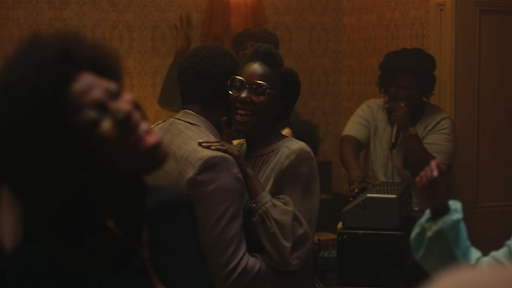
4. LOVERS ROCK
Director: Steve McQueen
2020’s handful of high-profile, auteurist centerpieces trotted out for slaughter retreated into their own asses, too cowardly to be the paradigm-shifting formal exercises their creators could certainly afford to produce; in fact, several of McQueen’s Small Axe installments fit right into this description. In a year that presented endless reasons for this disgusting medium to die out, once and for all, LOVERS ROCK singlehandedly proved the imperative of this art. It’s 70 minutes of a realm of raw sexuality transforming into an arena of controlled, radicalizing aggression. Whether you’re in the fray of the dance floor or coolly assessing the room from the sidelines, the heat rises and you’re tasting the salt of a stranger’s sweat. It’s not a movie about a party. It is a holy congregation leveled by an interconnected spirituality unlike most reading this have ever experienced. Sure, I’ve scream-sung “Waves” into my best friend’s mouth at 1 AM: it was ecstasy, but it wasn’t church. You and the girlies screaming Ariana Grande at the top of your lungs isn’t quite it either: she doesn’t know who the fuck you are and never will. LOVERS ROCK is the display of music by a given community for its given community. Surely you’ve heard of that 10-minute “Silly Games” sequence, where dub legend, and songwriter/producer of the track, Dennis Bovell, in a lovely cameo, sways to his own art with the precise audience he had calibrated it for. For the length of a one-hit-wonder’s rapturous single, Hell freezes over as the collective prays to their own, self-made cultural gospel. Whereas Small Axe felt desperate to acclimate its instincts for a white viewer, LOVERS ROCK is a precious invitational to a communal force. You are not worthy of joining this space, but McQueen nevertheless extends the olive branch. [Kevin Cookman]
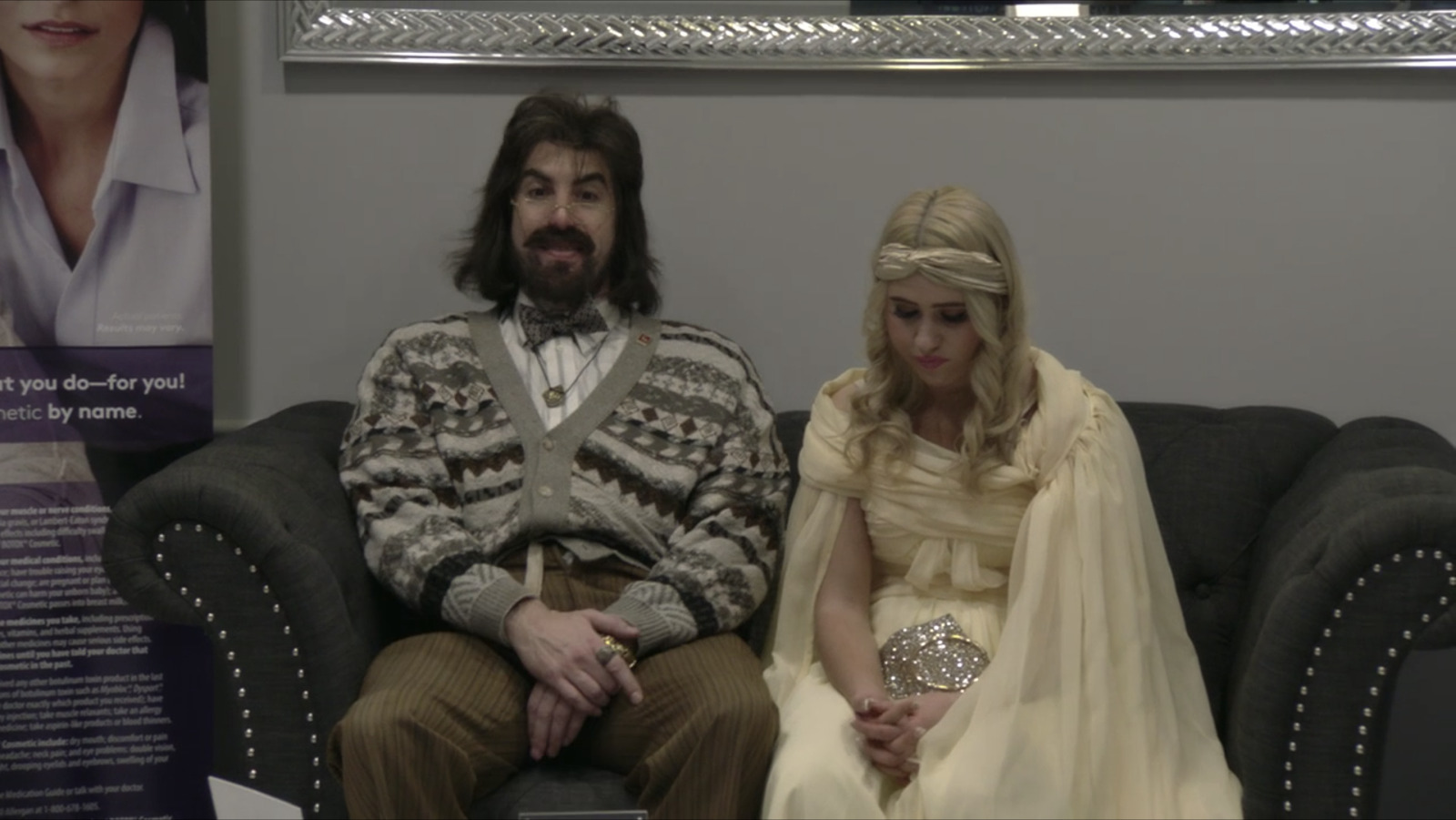
3. BORAT SUBSEQUENT MOVIEFILM
Director: Jason Woliner
Does Sacha Baron Cohen reignite the cultural barn burner of BORAT with a sequel 14 years later? Well, no. That was an impossible task. BORAT has already shaped reality, so now reality finally shapes BORAT. From the jump, the character opts for disguises now that his likeness is so instantly recognizable to Americans: Borat barely gets to look like Borat. He’s even further eclipsed by breakout star Maria Bakalova. The Bulgarian actress, portraying Borat’s daughter (Tutar), is willing to dive into any situation with Cohen, there beat-for-beat with him in a bevy of unscripted situations, oftentimes topping his jokes or simply outshining him. When Tutar eventually emancipates herself from Borat, Bakalova’s on-screen presence is sorely missed. That is, until she returns for the prank seen ‘round the world. Nearly every comparison to the first film has been grossly misguided. In not actually being “BORAT TWO,” there’s less room for expectation and even more room for surprises. Cohen takes his main conceit, melding fiction with reality, and sees it through to the final twist, of which, in pure BORAT fashion, is hilariously slap-dashed together. Whether or not Cohen’s antics are as fresh as they were in 2006, or if they’re seen as silly stunts in and of themselves, doesn’t even really matter. None of the conclusions we may come to detract from the fact that watching BORAT SUBSEQUENT MOVIEFILM was the most fun we had in 2020, full-stop. Wawawewa! [Alexander Larios]
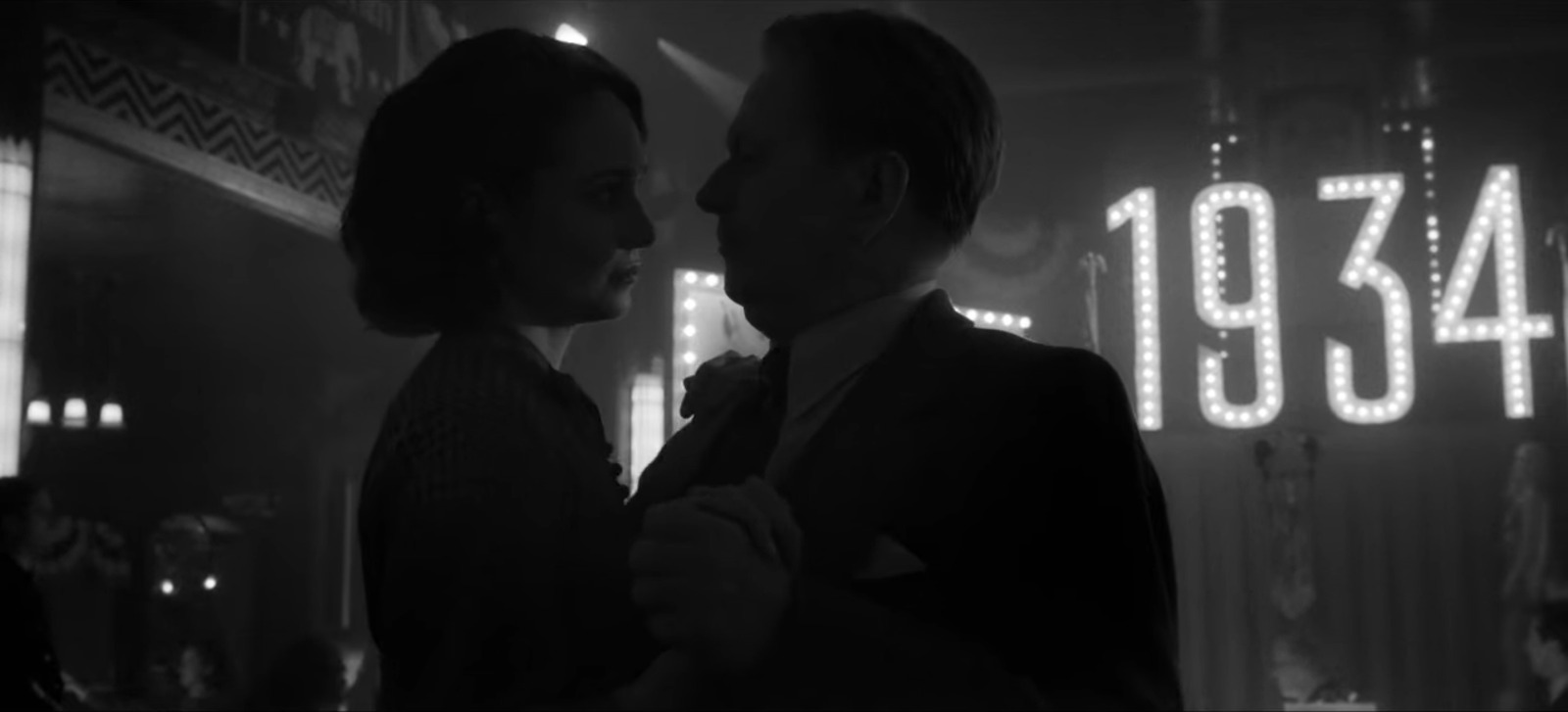
2. MANK
Director: David Fincher
Sometimes there’s just nothing more beautiful than seeing a filmmaker make a film in honor of their father. When that filmmaker is David Fincher, it doesn’t hurt to throw in some outstanding black-and-white photography, a dazzling lead performance, and a gorgeously realized Golden Era Hollywood. MANK is what Elia Kazan’s failed THE LAST TYCOON so desperately wanted to be: a tribute to an industry of yesteryear, told with a free and loose poeticism that is so seldom seen in contemporary cinema. It’s hard to earnestly criticize a work of art when its director is having this much fun in its creation. It’s truly a film of ceaseless ambition and devout passion, every scene showered in moment-to-moment decision making, hyper-specific camera movements, exceptional editing, razor-sharp dialogue, and stunning visual flourishes. MANK’s free-wheeling structure, playfully jumping from place-to-place, fusing dreamy memories with factual occurrences, all feel so unapologetically unique that I can’t not adore it. It is to Fincher’s oeuvre what LA DOLCE VITA is to Fellini’s: a filmmaker studying a world of artifice through the lens of their own auteurist perfectionism. [Sergio Zaciu]
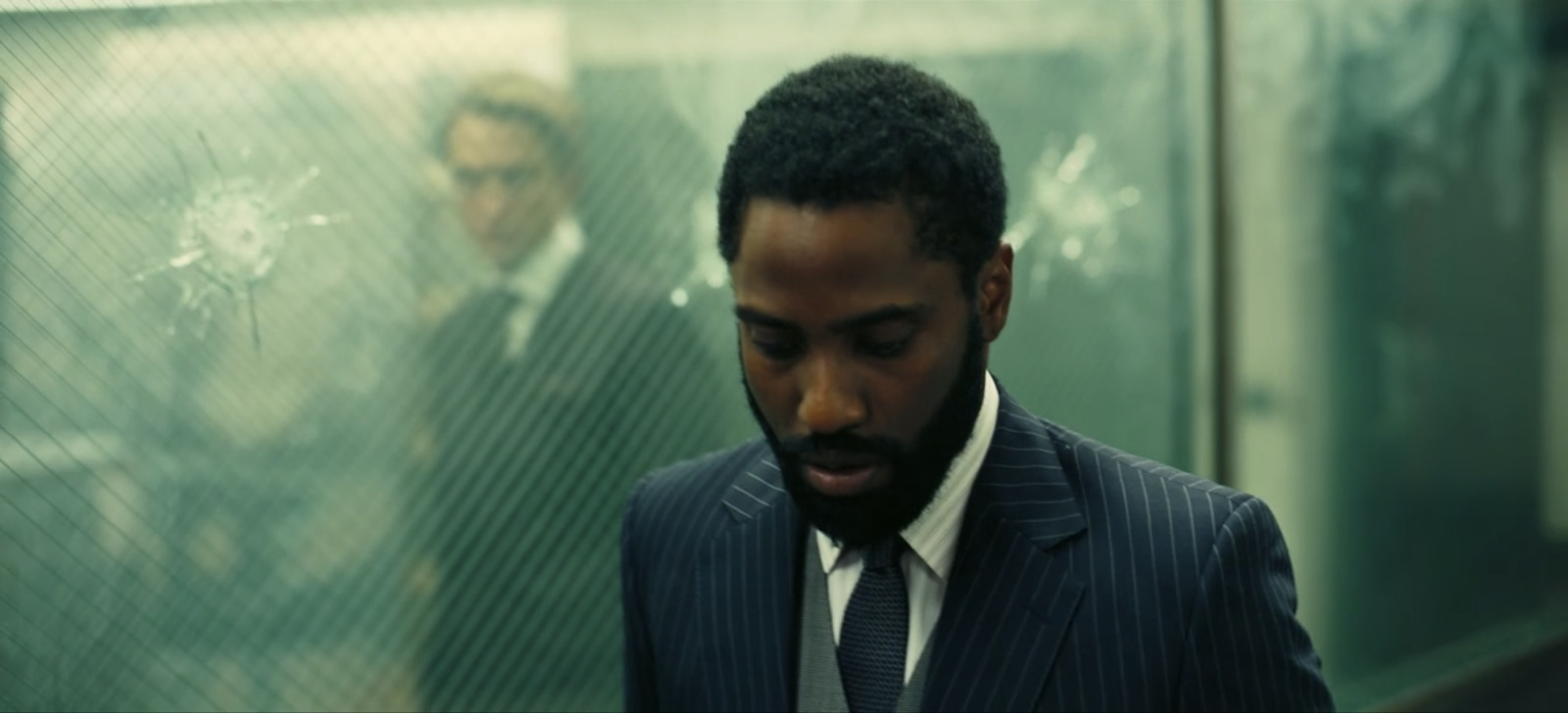
1. TENET
Director: Christopher Nolan
Are you scared of a world that seems to be retreating into itself? Are you depressed at the idea that movies are becoming logical proofs; ethical textbooks? Do you search everywhere for something a bit past that: for waves of texture, color, speed, emotions you can’t explain? Do you like Robert Pattinson’s jaw? John David Washington’s shoulders? Do you like the way 65mm turns light into cream and movement into memory? Do you like a jet driving into a building and reversing out of it? Do you like your movies to do new things with the human body? Do you like new ways of blocking action, as in TENET’s final 40, which are as heart-on-sleeve urgent as any Englishman is capable of directing? Nolan has listened to claims that he just explains movies at you—then spent the last six years sabotaging his own audio mixes, undercutting the verbal in pursuit of something a bit more primal. TENET is full-body bass—it is not verbal and not intellectual. It is a physical and instinctual experience that stretches its maker’s considerable gifts into new areas of structure and emotion. This was an embarrassing year for the cinema, pandemic or not. Directors everywhere are moving backwards into a space of just pointing a camera at a script. Do not look a gift horse in the mouth. TENET, at once maximal and minimal, is the yardstick for 2020. [Ryan Michaels]
Thanks for reading! Merry-Go-Round Magazine is an independent media source funded by people like you! If you’re enjoying our End of 2020 Coverage, consider becoming a member of our Patreon, or even donating to our operation here!
















“im the protagonist” “no im the protagonist”
You really f*cking give that^^^ movie of the year? This bothers me on a cerebral level, I will be actively angry about this for years to come. This democratic list has proven to me that democracy is a failed illusion, I am abandoning hope. Thanks merrygoround.